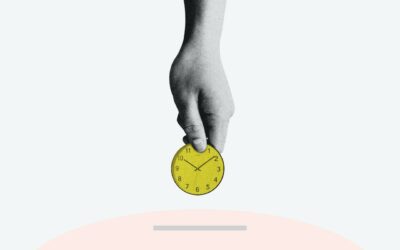This week I listened to a Harvard Business Review podcast that caught my eye because of the title: Managing Career Transitions Part 1: Facing Childhood Demons with Jerry Colonna. It prompted me to share the story of how I exorcised my childhood demon.
I was an only child. My mother was an alcoholic who relapsed every 6-9 months and became bedridden as she starved and drank herself to the edge of the cliff of death.
One day, when I was 15, I opened the door to our two bedroom apartment. It was pitch black except for the yellow glow of a table lamp from the corner of the dining room. I heard the muffled sobs of my mother. With my heart pounding like a sledgehammer I crept my way into the living room. Naked except for her white panties, she was sitting at the dining room table, arms outstretched, a razor blade in her right hand, slashes all over her left wrist, and blood everywhere. She looked up at me, her face drowning in alcohol and overflowing with tears.
I grabbed the razor and started to scream for help. Ralph, my retired Navy cook “stepfather” suddenly barged in through the front door. As I stood there squeezing her wrist to stop the bleeding, I started screaming at him. He clenched is right fist, raised it in the air, and backhanded me across my right cheek, just like the cowboys did in his beloved western TV shows, sending my scrawny teenage body across the room and onto the floor. That is the last thing I remember.
For the next 43 years the verbal loop that played like a broken record every time I thought of the relapses or the suicide or the time she said “somedays I wish I had never had you” was “how could she have done that to me.”
Having crawled out of that cesspool to become very successful, I was convinced that all of that stuff was behind me, that I didn’t have any mommy issues.
But it wasn’t. Betrayal was hidden in the dark corner of my mental universe, in plain sight.
I didn’t see it until I ended up on the couch in my psychologist’s office at Hazelden, and I began to hear myself repeat the same story again and again. The story always went something like this.
Someone very important to me did something to me that I perceived as letting me down. Note the key aspects of this sentence:
a) someone very important to me
b) did something to me
c) that let me down
It was the outside world and not my response. The something they did could range from becoming angry with me to even smaller issues where I felt let down. The something they did would trigger me to literally shut down. I am struggling to find the words to describe just how instantaneous and powerful this physiologic response was. I could feel myself sinking, as if in quicksand, and I was powerless to stop it. Rumination and resentment would take over and manifest as withdrawal and silence. To me it seemed like a “normal” response since the other person “did it to me.” But I hated my response. I hated being like that for even one hour. It robbed me of my normal tremendous enthusiasm and energy for life. Intellectually I could see that my response seemed too strong and disproportionate to the stimulus, but the apparent linkage to the stimulus was just so apparent.
My psychologist kept trying to nudge me toward my mommy issues, but I wasn’t buying any of it. Mommy was in the past. She is dead. Finally, she insisted I read The Body Keeps The Score by Bessel van der Kolk. The data, as always, convinced me. Awareness, the first prerequisite of change.
The next part was the hard part. What to do when I got triggered and started to shut down? With my psychologist I developed a strategy. First I had to envision holding onto myself, not allowing myself to sink, and when the gun fired I would, in the moment, remind myself of where this response was really coming from – the past, living in the present. Second I would calm myself by breathing deeply and slowly. Third, if necessary, I had to go off on my own to collect my wits and to talk to myself, usually the laundry room to fold some clothes if I was at home. Fourth, I would force myself to go back and stay present to the problem, and act “as if” I was not shut down or shutting down. This was the hardest part, since battling the overwhelming force of my internal emotional reaction was like fighting the undertow of the ocean.
It was hard work, but it payed off. I still get triggered, but now its like a cap gun instead of a 44 magnum and I recover quickly and easily. This has been life changing because I am no longer afraid of myself.
Thankfully, most of us don’t have such severe trauma in our early lives. But a lot of us do have wounds. No matter wounds or trauma, they leave scars, in the form of memories and neurologic loops that were created to protect us from such pain. It is remarkable how, as a child, one small wound from a caregiver can create a life time of misery. I saw this most clearly in two stories at a leadership retreat that people were sent to by their employers:
Stacy, who as a little girl at her sister’s birthday party, starts taking over helping her sister open her presents. Mom takes Stacy into a bedroom, closes the door, and reams her out for being so selfish and not focused on her sister. Result = chronic feeling of being unworthy and less-than.
And Jim, whose father, a good and gentle man, dismissed most of Jim’s ideas and dreams as not practical. Result = always afraid to voice his opinion or ideas.
In both of these people, these wounds had profound effects on their career and relationships. For Stacy it led to resentment and conflict borne of the outsized need to be recognized and valued. For Jim it led to a suffocating inability to offer his ideas and opinions with conviction, preventing him from being promoted into leadership positions. What was so amazing to me was how both Stacy and Jim came into the retreat thinking that was just “how they were” as if it were part of their personality. They may have had an inkling, but in the chaos of life the inkling gets drowned out. But they both left the seminar knowing it wasn’t them. It was their past.
“All I do know is as we age, the weight of our unsorted baggage becomes heavier … much heavier. With each passing year, the price of our refusal to do that sorting rises higher and higher. … Long ago, the defenses I built to withstand the stress of my childhood, to save what I had of myself, outlived their usefulness, and I’ve become an abuser of their once lifesaving powers. I relied on them wrongly to isolate myself, seal my alienation, cut me off from life, control others, and contain my emotions to a damaging degree. Now the bill collector is knocking, and his payment will be in tears.”
I also recommend Jerry Colonna’s book Reboot: Leadership and the Art of Growing Up.




0 Comments